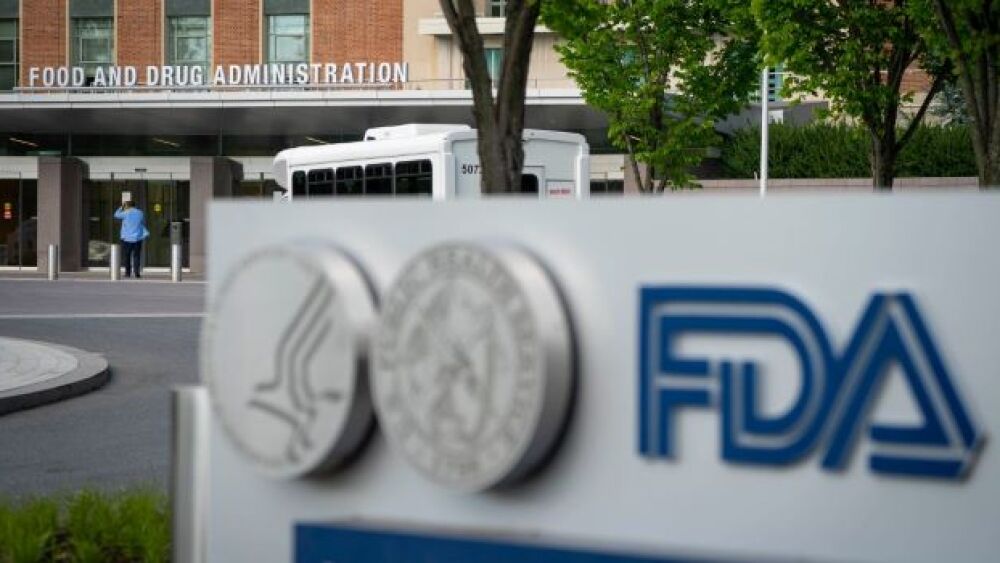As the calendar pages continue to turn, the FDA has a slew of novel drugs awaiting approval, several of which are likely to become game-changers for patients and key assets for companies.
Sarah Silbiger/Getty Images
In the first six months of 2022, the U.S. Food and Drug Administration approved only 16 novel drugs. Some of the approvals were supplemental, expanding previous authorizations, while some will likely be game-changers for the treatment of various diseases.
Lilly, Novartis and Marinus Raise the Bar in H1
Among those game-changers is Eli Lilly’s Mounjaro (tirzepatide), which was approved under Priority Review to improve blood sugar control in adults with type 2 diabetes. Not only did Mounjaro demonstrate efficacy compared to other diabetes drugs, but it also helped patients lower their weight by 15 to 23 pounds, which can be of critical importance in type 2 diabetes.
Another key approval in the first half of 2022 was Novartis’ prostate cancer drug, Pluvicto (lutetium Lu 177 vipivotide tetraxetan). Pluvicto is the first targeted radioligand therapy approved for use with adult patients diagnosed with prostate-specific membrane antigen-positive metastatic castration-resistant prostate cancer (PSMA-positive mCRPC) that has already metastasized.
As BioSpace reported at the time, the approval of Pluvicto is a “key clinical achievement” for progressing mCRPC patients, as they have no alternative forms of treatment. The five-year survival rate for these patients is only around 15%, which indicates a high unmet need.
Another ground-breaking drug approved in the first half of 2022 is Marinus Pharmaceuticals’ Ztalmy (ganaxolone), which was greenlit by the FDA for patients who experience seizures linked with cyclin-dependent kinase-like 5 deficiency disorder (CDD), a rare form of epilepsy. Ztalmy represents the first treatment specifically approved for this CDKL5 deficiency disorder.
H2 Could See Pivotal Approvals in ALS, CALD and Pompe Disease
As the calendar pages continue to turn, the FDA has a slew of novel drugs awaiting approval, several of which are likely to become game-changers for patients and key assets for the companies developing them. Among those drugs awaiting possible approval is a much-anticipated treatment for amyotrophic lateral sclerosis (ALS) and a gene therapy for pediatric patients diagnosed with early active cerebral adrenoleukodystrophy (CALD).
Amylyx Pharmaceuticals hopes to see a win for AMX0035, its experimental treatment for ALS that has already been authorized for use in Canada. The approval of AMX0035, which will be marketed under the brand name Albrioza, marks the first new ALS drug approved in that country since 2018.
In the U.S., the potential approval of AMX0035 has been delayed. The FDA extended the PDUFA date in order to review a post hoc analysis of data announced in May, as well as additional clinical data. The post hoc analysis was presented about two months after the FDA’s Peripheral and Central Nervous System Drugs Advisory Committee voted 6 to 4 against the efficacy of the experimental drug in ALS based on data from a single Phase II study. The FDA advisory committee plans to reconvene on Sept. 7 to discuss the additional data.
Cambridge, Massachusetts-based bluebird bio could see a pair of wins for its lentiviral vectors by the end of summer. In June, bluebird saw both of its gene therapies, one for CALD and one for beta-thalassemia and sickle cell disease, receive a vote of confidence from an FDA advisory committee. The committee said the benefits of eli-cel and beti-cel outweigh any risks.
Particularly in CALD, a fatal neurological disease caused by a mutation in the ABCD1 gene, that is the case. Currently, the only treatment for that disease is a stem-cell transplant from a matching donor. However, many of the patients do not have such a donor, and their options are severely limited. Eli-cel was unanimously supported by the advisory committee, and then one day later, beti-cel received the same level of support.
Amicus Therapeutics could also see a two-drug combination approved for Pompe disease. Together, the two drugs make up the experimental treatment AT-GAA. Both drugs will be reviewed separately by the FDA, with PDUFA extensions added earlier this year in order to examine additional data provided by the company.
Two other potentially key approvals include cancer drugs developed by Novartis and Bristol Myers Squibb—tislelizumab, which has been approved in Europe, and deucravacitinib, respectively.
While there are multiple therapeutic hopefuls awaiting approval, the FDA will need to increase its pace of greenlighting novel drugs if it intends to maintain the same pace it set over the past two years. In 2021, the regulatory agency approved 50 new treatments, and the year before that, it greenlit 53.





